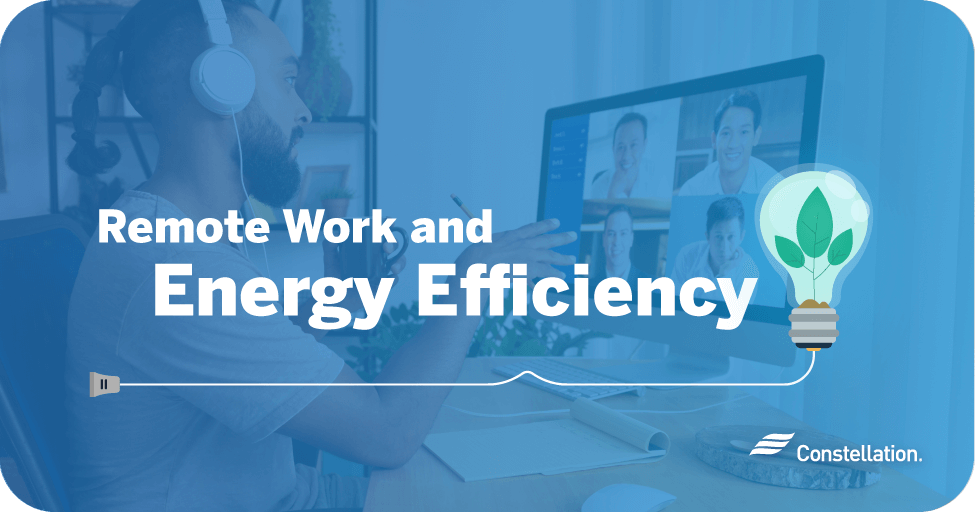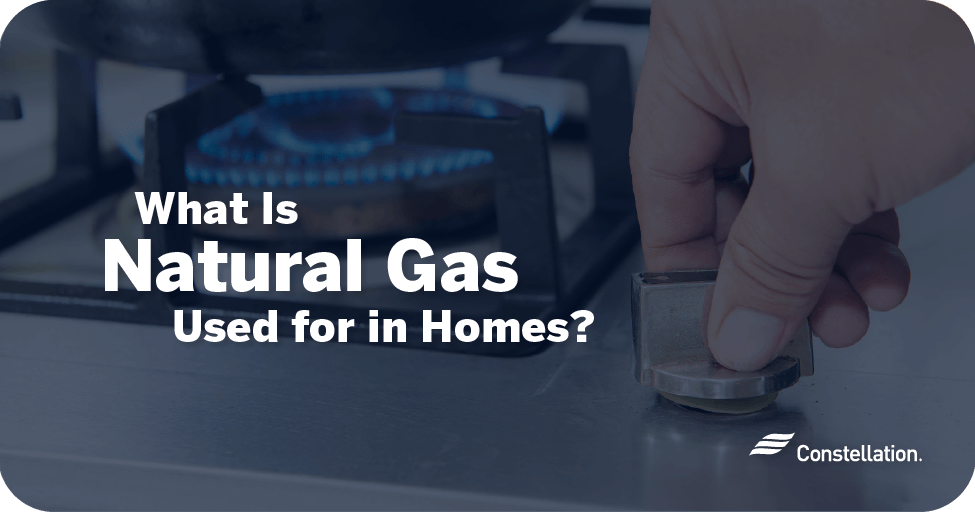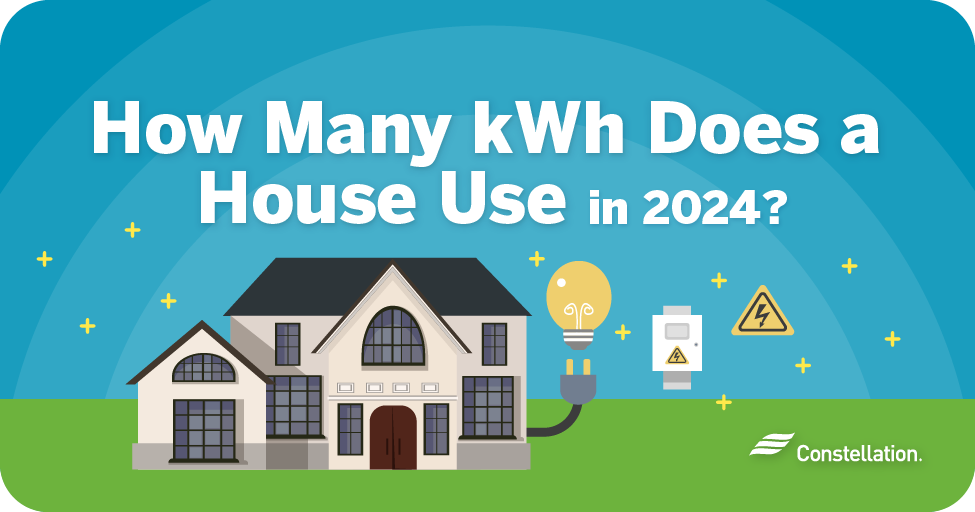
- Category:
Home Energy Savings - Published:
February 25, 2021 - Updated:
March 25, 2024
How Many kWh Does a House Use in 2024?
When asking how much electricity a house uses, you are taking an important step in gathering information you need to manage your energy bill.
While you can tell how much energy you are being charged for by looking at your monthly energy bill, it helps to know the national average. Maybe you are super efficient and beat the average kWh usage per month or maybe you are using more than most.
By understanding your home power usage and how it compares to the amount of electricity a house uses on average, you can explore ways you can cut your power usage and run a more efficient home.
Table of contents:
- How many kWh does a house use?
- Average house kWh usage per square feet
- Average household power usage by state
- Factors affecting your home’s energy usage
- Top appliances contributing to house power usage
- Tips to limit your home energy consumption
How many kWh does an average house use?
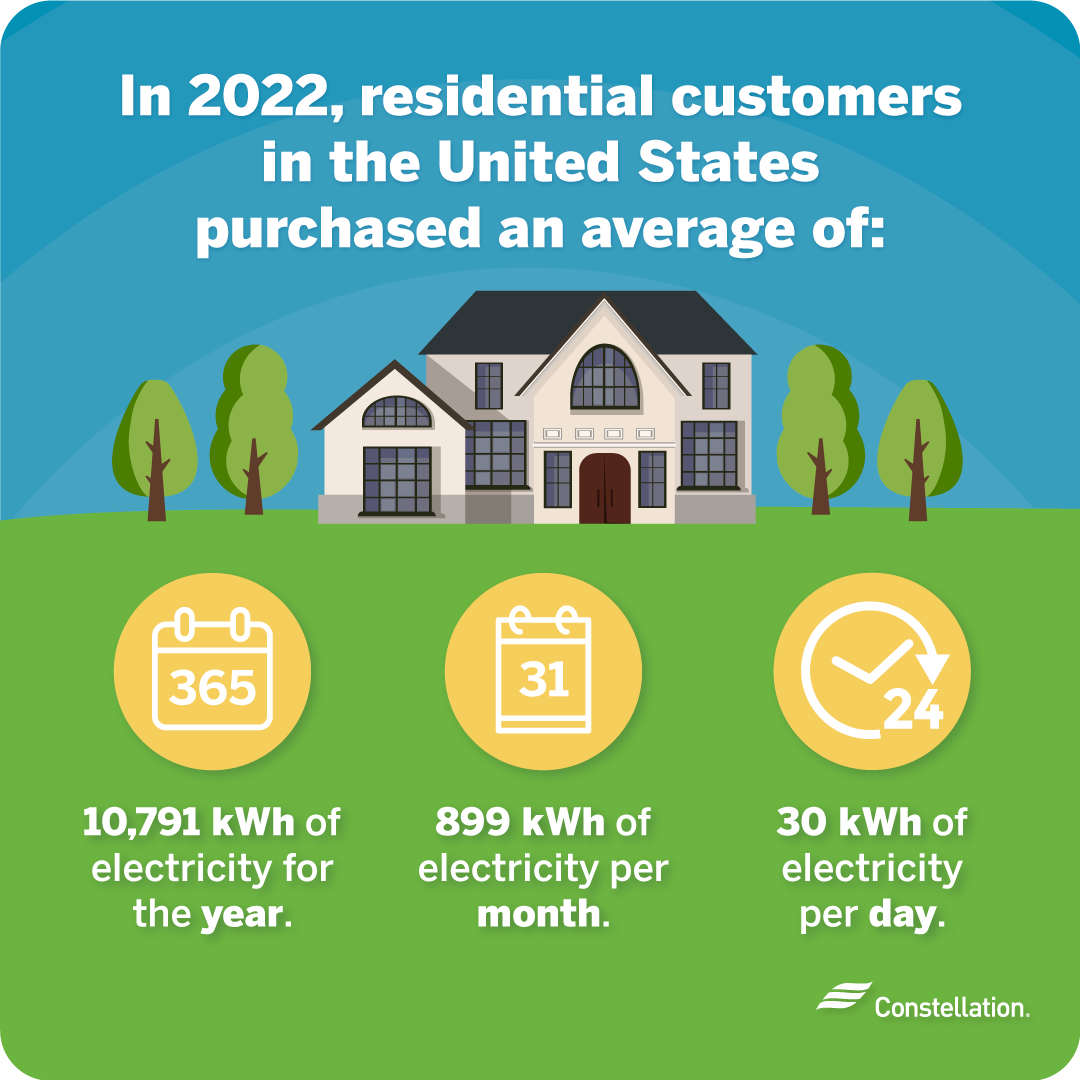
Residential customers in the United States used an average of 10,791 kilowatt-hours of electricity in 2022. This works out to roughly 899 kilowatt-hours per month, or about 30 kilowatt-hours per day.
Many factors influence your actual home power usage. When comparing the average power consumption of a house with your power bill, consider the various drivers of energy usage.
| Frequency | Home electricity consumption (kWh) |
| Daily | 30 |
| Monthly | 899 |
| Yearly | 10,791 |
Average household kWh usage per square foot
The size of your home is the largest factor when it comes to how much energy you use to heat and cool it. Energy Information Administration annual household consumption data calculates energy usage per square foot in thousands of Btu.The average home uses 42.2 Btu per square foot, translating to $1.04 per square foot, given the average cost of energy in 2020. That means the average energy cost is $2,6000 for a 2,500 sq. ft. home.
As you compare your usage to those averages, think about why your electricity use may be higher or lower. Maybe you have more people living in your house. Or you may use many power-hungry appliances or electronics. If you live in a place with long, hot summers or colder than average winters, your heating or air conditioning bills may be higher than average.
Which U.S. states use the most electricity per residential home?
Electricity consumption varies state to state. Louisiana, with their hot, humid summers, has the highest annual electricity use per residential customer. Southern and western desert states together use the most electricity per home, according to 2020 data.
| State | Total electricity consumption (kWh) |
| Louisiana | 14,779 |
| Tennessee | 14,220 |
| Mississippi | 14,062 |
| Florida | 13,990 |
| Alabama | 13,810 |
| Arizona | 13,603 |
| Oklahoma | 13,579 |
| South Carolina | 13,526 |
| West Virginia | 13,462 |
| Texas | 13,440 |
Factors that affect your home’s energy usage
How much energy does your home use vs. the average kWh usage per day for the average home? It helps to understand what a kilowatt-hour is. It is the amount of energy it takes to run a 1,000-watt device for an hour.
While it is helpful to know how many kWh per day is normal for the average house, you will also want to understand what is driving usage in your home. Consider:
- Size of your home. Larger homes typically consume more energy than smaller homes because it usually takes more energy to heat and cool a bigger space.
- Geographic location and climate. If you live in an area with milder weather, you may be able to cool or heat your home more efficiently than a home in an area that experiences more extreme temperatures.
- Your home’s building materials and year of construction. The materials used to build your home may not be energy efficient. If you own an older home, it may not be well insulated.
- Number of residents. More people living in your home using devices and appliances will increase your average household electricity consumption.
- Number of appliances. The more appliances used in your house, the higher your energy usage.
- Type of appliances. Older appliances often weren’t designed to use minimal power, which is why it is often worth replacing them with newer energy-efficient appliances.
- How often appliances are used. You will use less energy by operating appliances less often, such as waiting to run the dishwasher until it’s full. Another home energy savings tip is to unplug devices when not in use.
- Main heating fuel. If your home has an electric heating system, you will use much more electricity than one that uses natural gas or heating oil.
Which appliances contribute the most to your average home power usage?
The appliances in your home consume varying amounts of power, depending on their age and energy efficiency and how often you use them. How many kWh does a house use? It depends. Here are the appliances that use the most electricity in the average home:
- Heating and cooling equipment. Air conditioners, all types of electric heaters and other HVAC equipment are often used around the clock in winter and summer, driving up the average kWh usage per month in most homes. Air conditioning alone accounts for nearly 19% of the average power consumption of a house.
- Water heaters. Heating water is the second biggest consumer of power in most homes.
- Refrigerators and freezers. Since refrigerators and freezers are always running, they’re always consuming energy, making up a large amount of the average kWh usage per day in your home. And with 34% of homes in the United States having two or more refrigerators, the energy they consume quickly adds up.
- Light fixtures. In 2020, residential homes in the United States used a total of 62 billion kWh of electricity on lighting. Lower your energy consumption by replacing incandescent lights with LED or CFL bulbs.
- Home entertainment systems. From televisions and gaming consoles to DVRs and streaming services, home entertainment can consume a good amount of energy. In 2020, these devices consumed 61 billion kWh of electricity in American homes.
- Washing machines and dryers. The more people living in your home, the more often you run your washer and dryer and the more power you use. You can reduce usage with these ways to save energy while doing laundry.
- Ovens and stovetops. Electric ovens and stove tops are also power hungry appliances. Switching to an induction range is 5% to 10% more efficient than traditional electric models.
- Dishwashers. Dishwashers that run often will add to your energy usage. Upgrading to an energy-efficient dishwasher, running it only when full and not using the drying option will slash the energy you use.
When looking for ways to reduce your power usage, this tool from Energy.gov can help you estimate the energy your appliances use. Once you know where the power is going, you can take steps to lower your overall electricity consumption.
Tips to limit your home energy consumption
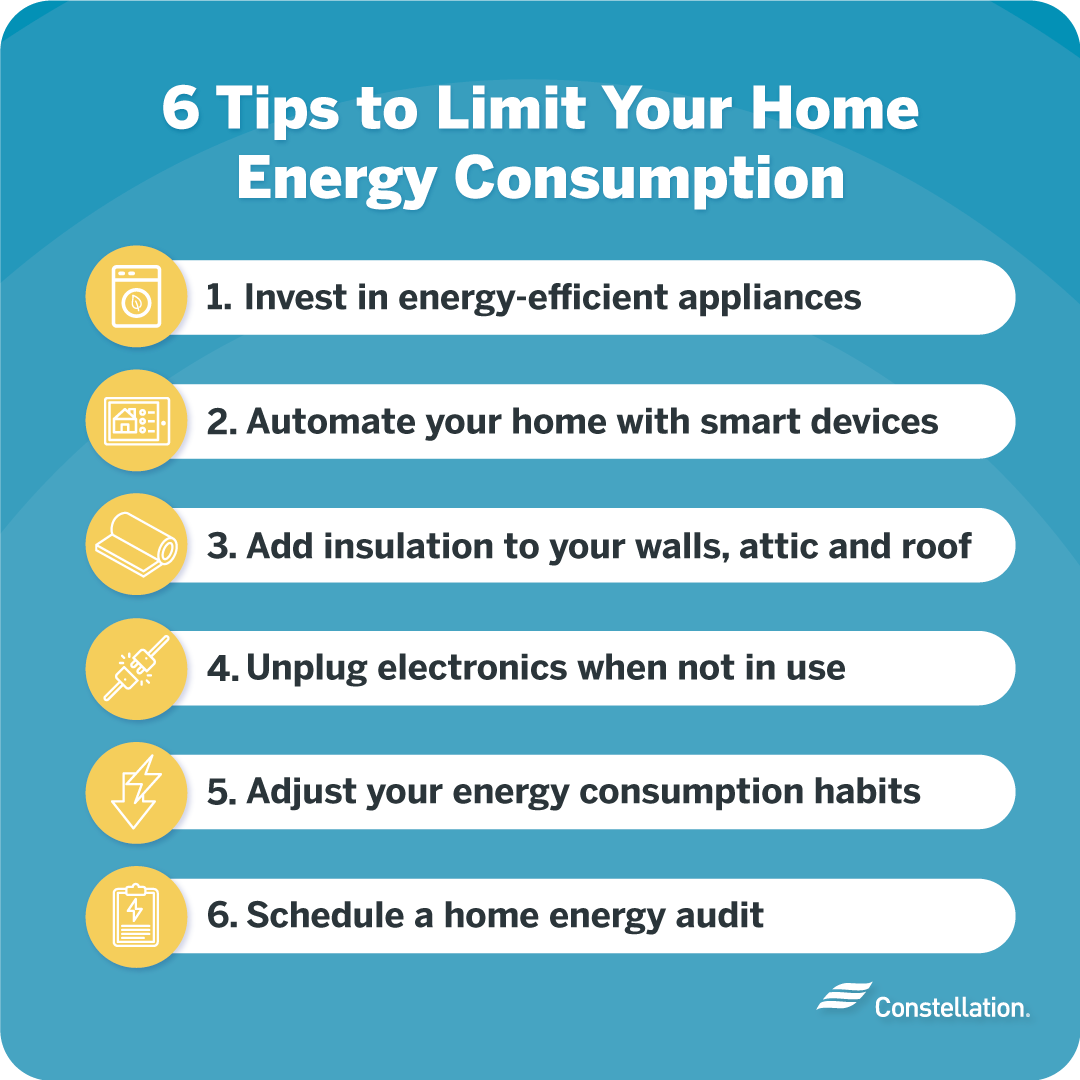
Now that you have a handle on how many kWh does a house use and how your own average kWh usage per month compares, you are ready to put ways to save energy in your home into action.
Here are some ideas for where to start:
Invest in energy-efficient appliances
Upgrading to energy-efficient appliances is a great way to reduce home energy usage. Look for appliances with the yellow ENERGY STAR® label, as they consume less power and may even qualify for rebates.
An energy-efficient refrigerator certified by ENERGY STAR® uses an average of 33% less energy than models that are more than 15 years old.
Automate your home with smart devices
Looking for another way to limit how much energy a house uses? Smart tech automates your home appliances and other aspects of your house to optimize energy usage. This technology also gives you the ability to monitor and adjust your energy usage remotely.
You can connect any device to your smart home system by plugging it into a smart plug. With so many smart plug uses, you can experiment to find what saves you the most energy.
Add insulation to your walls, attic and roof
Without proper insulation, your house can lose a significant amount of the hot or cold air produced by your HVAC system. Your heater and air conditioner will have to work harder and use more electricity to keep your home at a comfortable temperature. Insulating your walls will increase your home’s efficiency. Adding roof and attic insulation, and adding weatherstripping to doors and windows, also will cut down on your power usage.
Unplug electronics when not in use
Many devices and appliances use power in standby mode. Put an end to this waste by unplugging your electronics when not in use. While “sleep” or “standby” mode is convenient, you pay for it through a higher power bill. This is an especially important tip for saving energy if you are working from home.
Adjust your energy consumption habits
Simple things like turning the lights off when you leave a room, running fewer loads of laundry and ending energy-wasting habits all will reduce the average power consumption of a house. The energy consumption of streaming devices is substantial, along with gaming console energy consumption. Both add considerably to your overall home power usage.Turn them off to help save energy.
Schedule a home energy audit
Get a professional home energy audit as a first step in taking greater control over the amount of power you use. An auditor will tell you how you are using energy and will suggest ways to reduce your average home power consumption.
The audit process commonly finds air leaks and places where you don’t have enough insulation. If the audit finds air leaks in your home, you will know where to improve weatherstripping and insulation.
It is important to know how many kWh per day is normal for your home’s size and how much energy your specific home uses. Comparing the average kWh usage per day or per month for your home gives you insight into if you are overpaying for energy.
When you understand your energy costs, you will likely find it easier to reduce your usage, be more efficient, and get more value from the power you use–with a lower energy bill, too.

